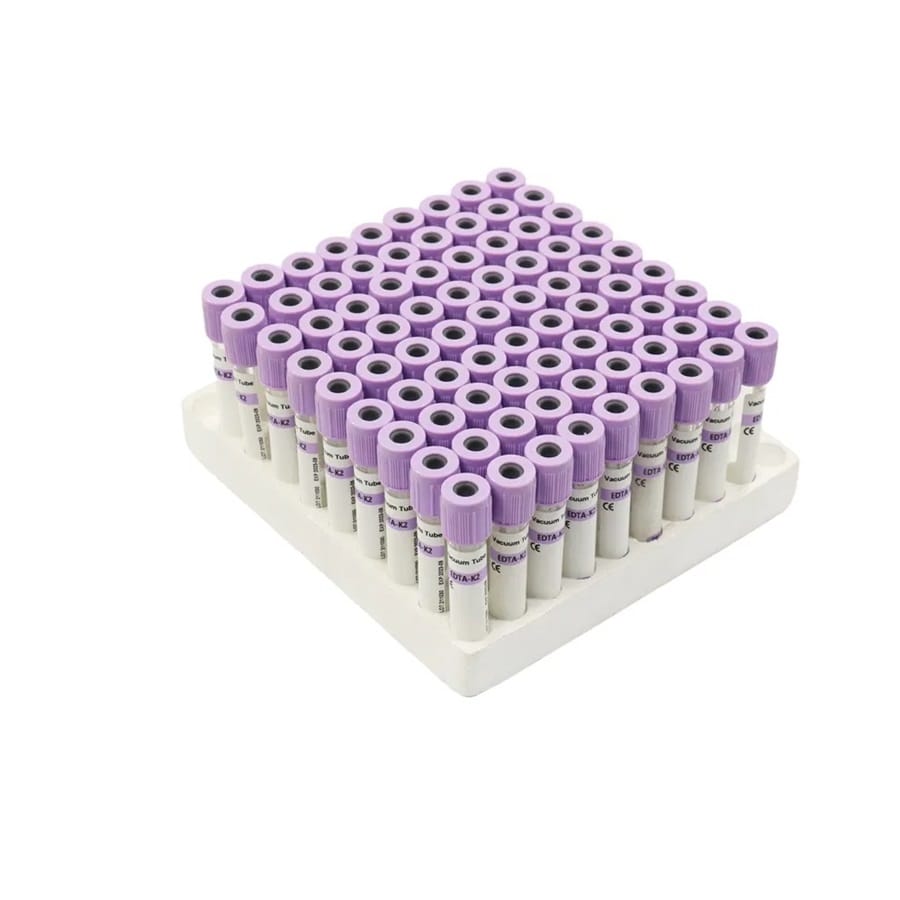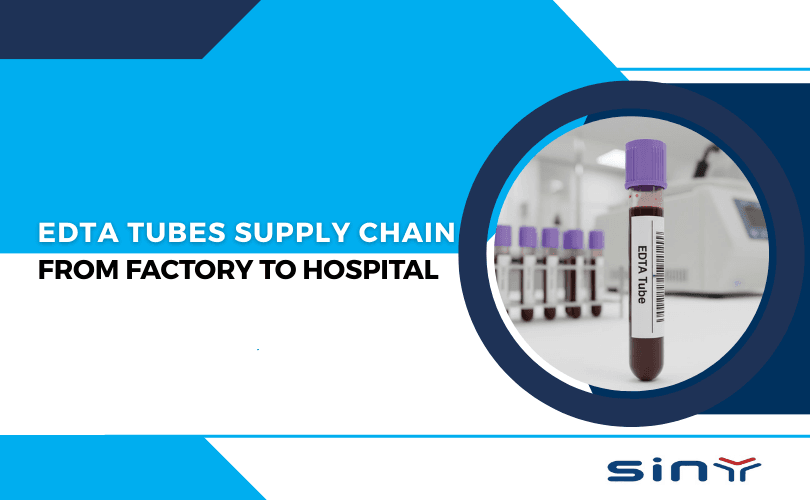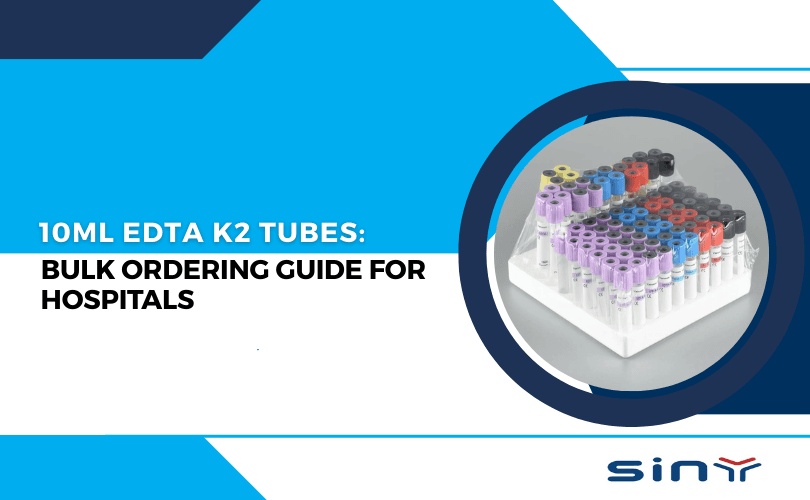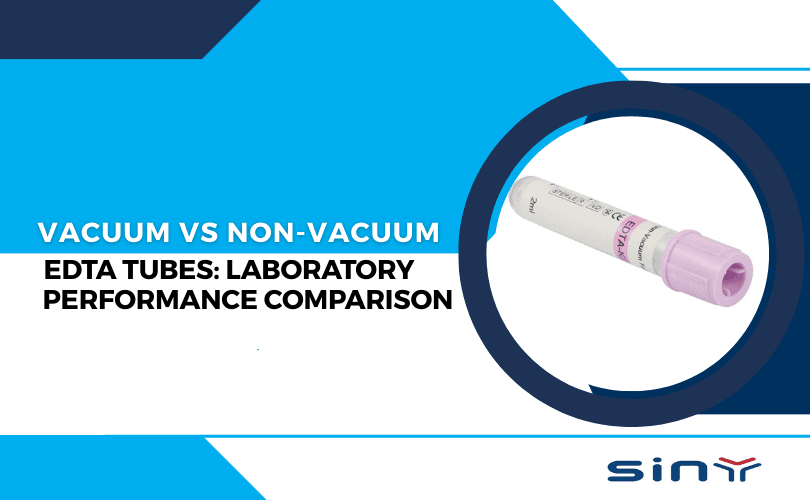The complete blood count (CBC) is one of the most commonly performed diagnostic tests in clinical laboratories. It provides critical insights into a patient’s overall health by measuring key components of blood, such as red blood cells, white blood cells, hemoglobin, hematocrit, and platelets. However, the accuracy of CBC results depends heavily on the quality of the blood sample collected. This is where EDTA tubes come into play. EDTA tubes are the preferred choice for CBC due to their ability to prevent blood clotting while preserving the integrity of blood cells. In this blog, we’ll explore why EDTA tubes are the gold standard for CBC and how they ensure reliable and accurate test results.
What Is a CBC (Complete Blood Count)?
A complete blood count CBC is a routine blood test that evaluates the cellular components of blood. It provides essential information about a patient’s health, including:
- Red blood cell count (RBC): Measures the number of red blood cells, which carry oxygen throughout the body.
- White blood cell count (WBC): Indicates the number of white blood cells, which are crucial for immune function.
- Hemoglobin concentration (HGB): Reflects the oxygen-carrying capacity of blood.
- Hematocrit (HCT): Measures the proportion of blood volume occupied by red blood cells.
- Platelet count (PLT): Evaluates the number of platelets, which are essential for blood clotting.
- Mean cell volume (MCV) and other indices: Provide additional insights into the size and shape of blood cells.

Since Complete Blood Counts CBC relies on accurate cell counts and morphology, the blood sample must remain anticoagulated and free from cellular degradation until analysis.
What Is EDTA and How Does It Work?
EDTA (ethylenediaminetetraacetic acid) is a chelating agent that binds to calcium ions in the blood, effectively preventing the coagulation cascade. This property makes it an ideal anticoagulant for blood collection tubes used in hematological testing.
There are two main types of EDTA used in blood collection tubes:
- EDTA-K2: This form is spray-dried onto the tube wall, providing stable anticoagulation with minimal impact on cell morphology.
- EDTA-K3: This liquid-based form is also effective but may cause slight swelling of red blood cells in some cases.
Most laboratories prefer EDTA-K2 tubes for CBC testing due to their superior ability to preserve blood cell structure.
Why Are EDTA Tubes the First Choice for CBC?
EDTA tubes are the preferred choice for CBC for several reasons:
- Effective Anticoagulation and Cell Integrity: EDTA binds calcium ions quickly, preventing blood clotting while maintaining the integrity of cell membranes. This ensures that blood cells remain intact and free from lysis or deformation.
- Compatibility with Automated Hematology Analyzers: Modern hematology analyzers are designed to work with EDTA-treated blood samples. These analyzers rely on precise cell counts and morphology, which EDTA tubes help preserve.
- Minimal Interference with Cell Counts and Morphology: Unlike other anticoagulants like heparin or citrate, EDTA does not cause cell clumping or nuclear distortion. This makes it ideal for morphological assessments and accurate cell classification.
- International Guideline Support: Leading organizations such as the Clinical and Laboratory Standards Institute (CLSI), the World Health Organization (WHO), and the International Organization for Standardization (ISO) recommend EDTA as the preferred anticoagulant for CBC testing.
Comparison with Other Anticoagulant Tubes
While other anticoagulants like heparin and sodium citrate are used in specific tests, they are not suitable for CBC.
- Heparin Tubes: Heparin prevents coagulation but can cause white blood cell clumping and alter red blood cell morphology. These changes can lead to inaccurate cell counts and classification.
- Sodium Citrate Tubes: Primarily used for coagulation studies, sodium citrate dilutes the blood sample, which distorts cell concentrations and makes it unsuitable for CBC.
In contrast, EDTA tubes provide stable anticoagulation without altering the natural morphology of blood cells, making them the gold standard for CBC testing worldwide.
Usage and Storage Recommendations
To ensure the accuracy of CBC results, proper handling and storage of EDTA tubes are essential. Here are some key recommendations:
- Gentle Mixing: Invert the tube 6–8 times immediately after blood collection to ensure proper mixing of blood and anticoagulant.
- Timely Testing: Complete the CBC test within 2 hours of collection to minimize cellular degradation.
- Storage Conditions: Store blood samples at a temperature range of 4°C to 25°C, avoiding direct sunlight and freezing.
- Avoid Vigorous Shaking: Vigorous shaking or prolonged stagnation can lead to cell clumping or sedimentation, affecting test results.
Summary
The complete blood count (CBC) is a routine but highly sensitive test that requires blood samples to be analyzed in their most natural state. EDTA tubes, with their excellent anticoagulant properties and ability to preserve cellular integrity, have become the global standard for hematology testing. By preventing clotting and maintaining cell morphology, EDTA tubes ensure accurate and reliable CBC results, making them an indispensable tool in clinical diagnostics.
For more information on EDTA tubes and their applications, visit our product page at EDTA Tubes for Blood Collection. Explore our full range of products at EDTA Tube Products and learn more about us at About Us.
FAQs
Can EDTA tubes be used for other blood tests?
No, EDTA is not recommended for biochemical, electrolyte, or coagulation tests because it binds calcium and magnesium, which can interfere with test results.
What’s the difference between K2EDTA and K3EDTA?
EDTA-K2 is dry and causes less cellular distortion, making it more suitable for high-precision CBC tests. EDTA-K3 is liquid-based and may slightly affect red cell volume.
Why is heparin not suitable for CBC?
Heparin can cause cellular clumping or morphological changes, leading to inaccurate white blood cell classification and platelet counts.







